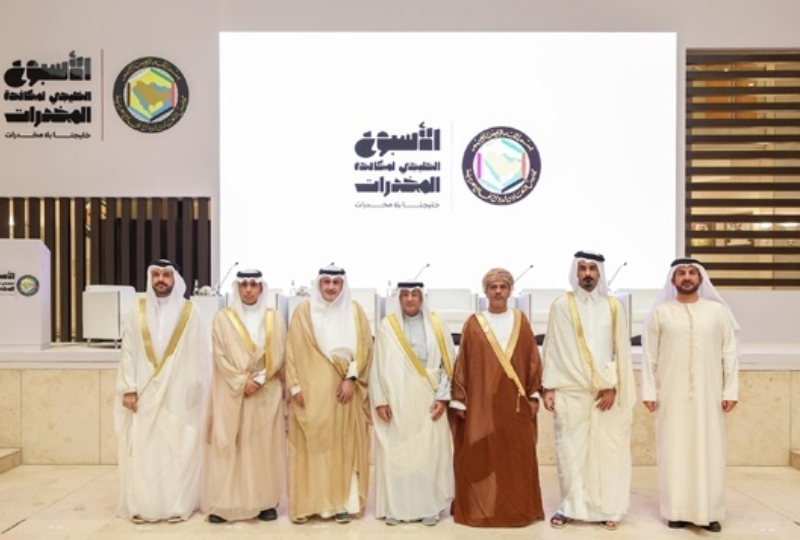Riyadh: Jasem Mohamed Albudaiwi, Secretary General of the Gulf Cooperation Council (GCC), said that the GCC member states give the issue of combating drugs the utmost priority, stemming from their belief in the importance of protecting "our societies and enhancing the security and safety of the citizens of our nations from this dangerous scourge,"
This statement was made during the celebration accompanying the International Day Against Drug Abuse and the Gulf Anti-Drug Week. The event was attended by Ministries of Interior and relevant officials from the Council member states.
At the beginning of his speech, the Secretary General pointed out that this occasion, which coincides with the International Day Against Drug Abuse and the Gulf Anti-drug Week, embodies the commitment of the GCC member states to continue collective and joint Gulf action to protect "our societies and enhance the security and safety of our citizens from the scourge of drugs,"
"This is based on the directives of the leaders of the GCC countries who have given this issue the highest priority, believing that protecting human life and preserving the security of society is a national and fateful responsibility. The GCC states have formed a cohesive front, based on security, legislative, and awareness cooperation, and are working relentlessly to dry up the sources of this scourge and to firmly confront anyone who attempts to target the youth and future of the Gulf," Albudaiwi added.
Moreover, He underlined that the Gulf Strategy for Combating Drugs (2025 – 2028) serves as a comprehensive and integrated framework to unify and direct the efforts of the Council states in this vital field.
"This strategy is based on key pillars, including reducing the supply and demand for drugs, drying up the sources, promoting alternative development, developing the Gulf legislative system, combating money laundering from drug trafficking, establishing a joint national monitoring system, as well as training and capacity building. These pillars aim to achieve integration between preventive, security, and therapeutic dimensions, ensuring an effective response to all aspects of this scourge," the Secretary General said.
He also affirmed that combating drugs is a collective responsibility that requires integrated action, sustained effort, and close cooperation between governments, societies, and individuals.
He added that "We, at the General Secretariat of the Cooperation Council, are committed to supporting and implementing this ambitious strategy, strengthening cooperation and coordination, and adopting initiatives that contribute to building safe, drug-free societies capable of protecting their children from future risks,"
Albudaiwi also touched upon the important role of the family and society, stating that they constitute the first line of defense against drugs through conscious upbringing, open dialogue, and continuous care. He noted that schools, the media, religious leaders, and civil society institutions have an equally important role in spreading awareness and building a healthy and safe environment that protects youth from falling into these dangers.
In the same context, the Secretary General stressed the importance of highlighting the societal integration of recovering addicts as a fundamental pillar for ensuring the success and sustainability of recovery and preventing relapse.
"The family has a significant and valuable role in providing emotional and social support, creating a stable and encouraging environment that boosts the recovering individual's self-confidence and encourages them to rebuild their life. The GCC states have been keen to establish hospitals, centres, and institutions dedicated to this matter, to provide treatment, create rehabilitation and empowerment programmes, and open up prospects for education, training, and work for recovering individuals, ensuring their active participation in society and supporting their positive integration, away from stigma or isolation.
At the conclusion of his speech, Albudaiwi expressed his pride in the close cooperation with strategic partners from the relevant ministries and bodies in the Council states, foremost among them the Ministries of Interior, Health, Justice, Education, and Social Affairs, in addition to customs authorities, coast guards, and national drug control committees, as well as the United Nations Office on Drugs and Crime. He affirmed that "we are keen to bolster these partnerships to ensure coordination and integration at the regional and international levels,"
GCC Sec Gen marks International Day Against Drug Abuse, Gulf Anti-Drug Week


&uuid=(email))